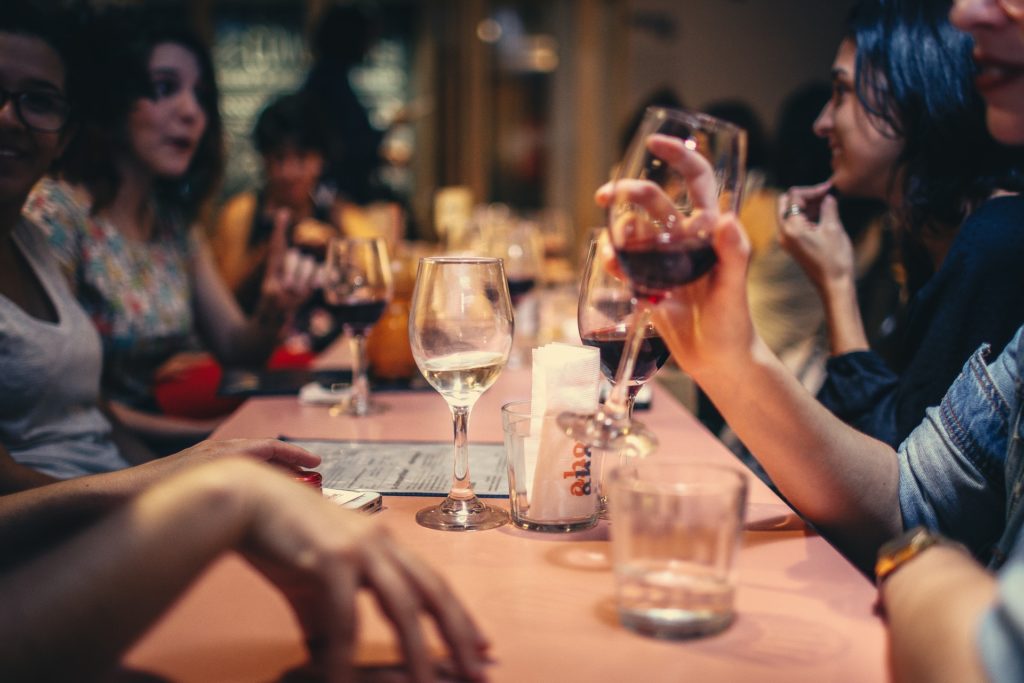Each year on the week of Thanksgiving, lawyers and financial planners all over America send me clip art.
The clip art comes with a note that says some version of, “We are grateful for the opportunity to serve our clients. Happy Thanksgiving from everyone at Reese Holdings, LLC.”
We’ve created a culture that finds these kinds of insincere messages quaint and well-meaning. And if you don’t believe me check your mailbox soon for holiday cards from people who haven’t called you once this year.
Each time I bring this up in polite company, I get the same cultural gaslighting I get with every holiday season: You’ve overthinking this. It’s just a card. They mean well.
And my all-time favorite:
“Margo. Sometimes you just do things because that’s how it’s always been done.”
Grab your Thanksgiving adult beverage of choice and buckle up. Let’s dive into “how it’s always been done.”
What in the history of “how it’s always been done” didn’t improve with more information, better science, and new traditions?
TRICK QUESTION because the answer is everything. Everything improves.
We don’t actually do anything the way it’s always been done. Most of human history, the “way it’s always been done” was really really really bad, like arranged marriage, bloodletting, monarchy, duels, and stoning people.
Heck, we’d have to get rid of engagement rings, Christmas trees, dreidels, turkey, cranberry, and gelt if we wanted to do things “the way it’s always been done” because those are super recent traditions that were most certainly not how it has always been done.
“How it’s always been done” is coded language for “how I want to do it” or “how I wished it was” or “because I miss my dad.”
And THOSE are conversations worth having.
Because if we started there we could have a reasonable chance at having the genuine gratitude, connection, intimacy, and love we crave – instead of this performance we put on each year for the holidays.
If a tradition doesn’t serve you, you can change it.
You already have. If you exist in the world today, you are engaging in traditions that your great-grandparents would never recognize.
But we cannot change what we don’t acknowledge. And when we hide behind tropes like, “How it’s always been done,” we refuse to engage with the truth: it has not always been done like this. We are choosing to do it this way. And each year we should decide for ourselves what we choose to opt-into and what we choose to let go of, now that we know better or more — or because we’re human and sometimes what worked last year, doesn’t work for us this year. Because life.
I see no value in performance traditions for the sake of tradition.
Humans have been evolving traditions for millennia – that’s what makes us adaptable. We are capable of change. I don’t know why change continues to get branded as “bad” but speaking as someone with some experience in branding I suggest we rebrand it.
New traditions are beautiful.
They can honor the past while making room for the future, instead of acting as an anchor for oppressive nostalgia. We get to decide what has meaning and what doesn’t. That’s our power as humans. We invent meaning, we’re are the keepers and bestowers of what we decide matters to us.
So let’s please stop lying about our motivations.
We’re not doing things “the way they’ve always been done.” We’re doing things because we miss our mom, we want to impress our friends, it connects us to the past, we love the drama of feeling needed or in control, we sincerely love cooking, our love language is hosting, or we feel systemic and cultural pressure to be something we’re not.
Whether these are good or bad reasons is not for me to judge. What’s important is they’re honest.
We cannot get anywhere if we don’t start by being honest about what we are doing and why we are choosing to opt-into traditions we’ve inherited.
You have a choice. You absolutely do not need to do things the way they’ve always been done. In fact, I hope you don’t. I hope you find a way to make things yours – to improve upon what you inherited and create new traditions that work for your specific circumstances and cause less harm in the process.
This Thanksgiving if there is anything to feel grateful for it is our capacity to change, evolve, and tell the truth. To choose to opt-out of what doesn’t serve us and create new traditions that do.
I’m keeping pecan pie. You can have pumpkin.
You do you.




